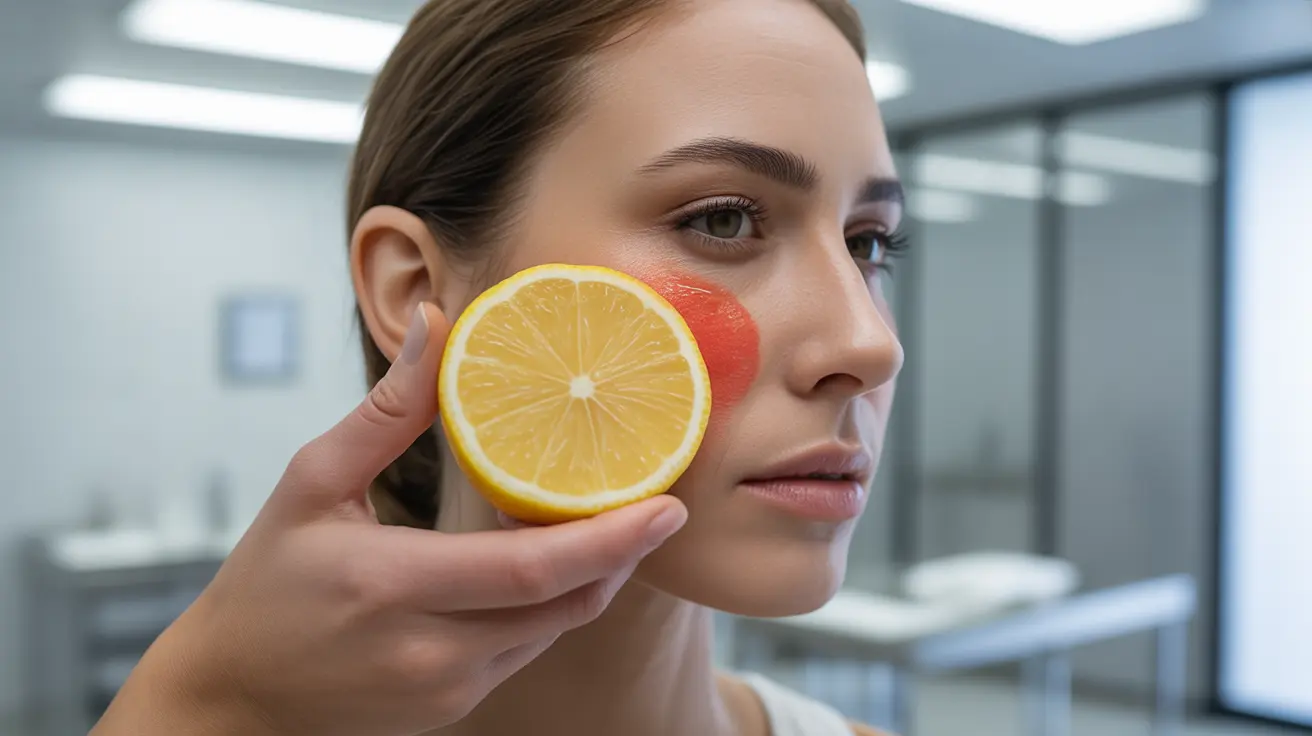Many people are intrigued by natural skincare remedies, and using lemon on face treatments has gained considerable attention. While lemon's natural properties might seem appealing for skincare, it's crucial to understand both the potential benefits and significant risks before incorporating this citrus fruit into your beauty routine.
This comprehensive guide will explore the science behind lemon's effects on skin, proper usage methods, and safer alternatives for achieving your desired skincare goals.
Understanding Lemon's Properties and Skin Effects
Lemons contain several compounds that could theoretically benefit the skin, including vitamin C, citric acid, and natural antibacterial properties. However, these same components can also cause significant irritation and damage when applied directly to facial skin.
Potential Benefits of Lemon on Skin
While direct application isn't recommended, lemon's natural properties include:
- Vitamin C content that may help with collagen production
- Natural astringent properties that could temporarily tighten pores
- Citric acid that may assist with gentle exfoliation
- Potential antibacterial effects that might help with acne-causing bacteria
The Risks of Applying Lemon to Your Face
Despite its natural origins, lemon juice can cause several serious skin issues when applied topically:
Immediate Risks
- Chemical burns and irritation
- Severe dryness and redness
- Enhanced sun sensitivity (phytophotodermatitis)
- Disruption of skin's natural pH balance
Long-term Concerns
- Potential hyperpigmentation
- Risk of developing leukoderma
- Permanent scarring
- Chronic skin sensitivity
Safe Alternatives for Skin Brightening and Treatment
Instead of using lemon directly on your face, consider these safer alternatives:
Proven Skincare Ingredients
- Vitamin C serums (properly formulated)
- Alpha hydroxy acids (AHAs)
- Niacinamide
- Kojic acid
Natural Alternatives
For those preferring natural options, consider:
- Honey masks
- Aloe vera gel
- Green tea extracts
- Yogurt-based face masks
Guidelines for Safe Use of Lemon in Skincare
If you still wish to incorporate lemon in your skincare routine, follow these essential precautions:
Proper Dilution Methods
- Never apply pure lemon juice
- Mix with honey or plain yogurt
- Use heavily diluted solutions (1 part lemon to 4 parts water minimum)
- Perform a patch test 24 hours before use
Important Safety Measures
- Avoid sun exposure after application
- Never leave on overnight
- Don't use on broken or sensitive skin
- Discontinue immediately if irritation occurs
Frequently Asked Questions
What are the potential benefits and risks of using lemon juice on your face for skin care?
While lemon juice contains vitamin C and has antibacterial properties, the risks far outweigh potential benefits. Risks include chemical burns, severe irritation, photosensitivity, and possible permanent skin damage. It's safer to use properly formulated skincare products instead.
How can I safely use lemon on my face without causing irritation or sun sensitivity?
If you choose to use lemon, always heavily dilute it (1:4 ratio with water minimum), never apply pure juice, and avoid sun exposure. However, it's safer to use properly formulated skincare products that contain stable forms of vitamin C.
What are some effective alternatives to using lemon for skin brightening and acne treatment?
Safe alternatives include properly formulated vitamin C serums, alpha hydroxy acids (AHAs), niacinamide, and kojic acid. Natural alternatives include honey, aloe vera, and green tea extracts, which provide similar benefits without the risks.
Can applying lemon juice to the face cause permanent skin damage, such as leukoderma?
Yes, direct application of lemon juice can cause permanent skin damage, including leukoderma (loss of skin pigmentation), scarring, and chronic sensitivity. The risk increases with sun exposure and higher concentrations of lemon juice.
How do I properly dilute lemon juice for facial use, and what precautions should I take to avoid adverse effects?
While not recommended, if using lemon juice, dilute it with at least 4 parts water to 1 part lemon juice. Always perform a patch test, avoid sun exposure, and never leave it on overnight. Consider using professionally formulated products instead for safer results.




